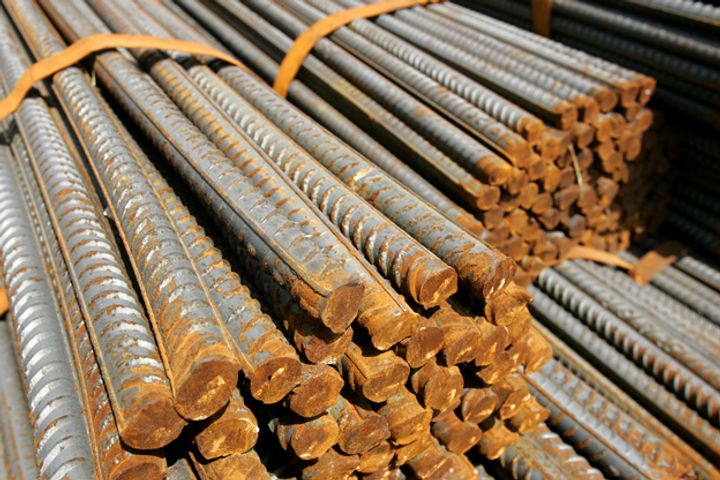 Lowering Tariffs Is Not Enough to Enhance Competitiveness of Chinese Steel Exports
Lowering Tariffs Is Not Enough to Enhance Competitiveness of Chinese Steel Exports(Yicai Global) Dec. 21 -- China will cancel export tariffs for steel and some other products and will lower export tariffs for ferrochrome silicon and steel billets starting Jan. 1, the Ministry of Finance said on its website.
This news caused a stir and once again threw the topic of steel exports into the industrial limelight. Steel exports used to draw a lot of attention in antidumping discussions.
Domestic steel prices have been recovering this year, in contrast to excessive steel costs overseas. Steel enterprises prefer to supply steel to the domestic market. As a result, after several years of robust growth, China's steel exports this year began to plummet. From January to November, China's steel exports declined 30.7 annually, per General Administration of Customs statistics.
I think the main objective in China's adjustment of the steel export tariffs this time is to maintain the competitive edge of China's domestic products at a time when the global industrial economy is recovering and the international demand for steel is booming. Clearly, with the global manufacturing industry consuming high quantities of steel and with the stark contrast between domestic and overseas steel prices, Chinese enterprises are unwilling to supply steel to overseas markets. In the long run, this will affect Chinese steel enterprises' competitiveness in the global market.
The steel industry is a typical high-energy consumption, high-pollution, and resource intensive industry. The country never encouraged steel exports. Exports of low-end steel products are even restricted, because large steel exports require large imports of iron ore. If China exports large quantities of low-end steel, it will face a situation where it must frequently tackle pollution alone while domestic subsidies are shifted overseas. This is why China has taken measures such as cancelling export rebates and imposing export taxes to restrict the export of low-end products.
Why have steel exports been soaring over the past few years, despite the restrictions on steel exports? This has to do with policy loopholes.
In the past, export rebates encouraged steel enterprises to export steel. Many steel enterprises added 0.0008 percent of trace boron elements into steel products and exported them as alloy steel just in order to be eligible for export rebates. They were just taking advantage of loopholes in export policies.
At present, tens of millions of tons steel exported as alloy steel contain a small amount of trace elements. The increase in cost is dozens of yuan per ton while the return is hundreds of yuan in export rebates. Due to the temptation of high profits, the export of such "alloy steel" has become an unspoken rule in the industry.
Being different from real alloy steel that sells for nearly USD1,000 per ton, this "alloy steel" is sells for around USD300 per ton and is in great demanded in Southeast Asian countries. Such "alloy steel" is usually "transited" in Hong Kong and obtains the export rebates in the mainland China as alloy steel before appearing in markets of various Southeast Asian countries as "billet steel" or "square steel."
Despite previous export tariffs on steel export, enterprises have evaded export tariffs by earning export rebates, which indicates that they did not pay customs duties and that the export duties have been of no avail, some analysts said.
Obviously, the tax rebate policy is not encouraging "alloy steel" exports. These "alloy steels" are mostly used as blanks for the production of other steel overseas. After gaining the tax rebate, enterprises can push the export price down very low, leaving pollution in the country while exacerbating trade friction in the steel industry.
I believe that the current status of domestic steel exports cannot be changed simply by reducing the export tariffs if the export tax policy adjustments do not close loopholes.
[Yicai Global is committed to providing an open forum to air a diverse range of views. The opinions expressed herein are the author's alone. Yicai Global has redacted this article to conform to our style and usage guidelines, but neither validates its factual nor endorses its editorial content.]